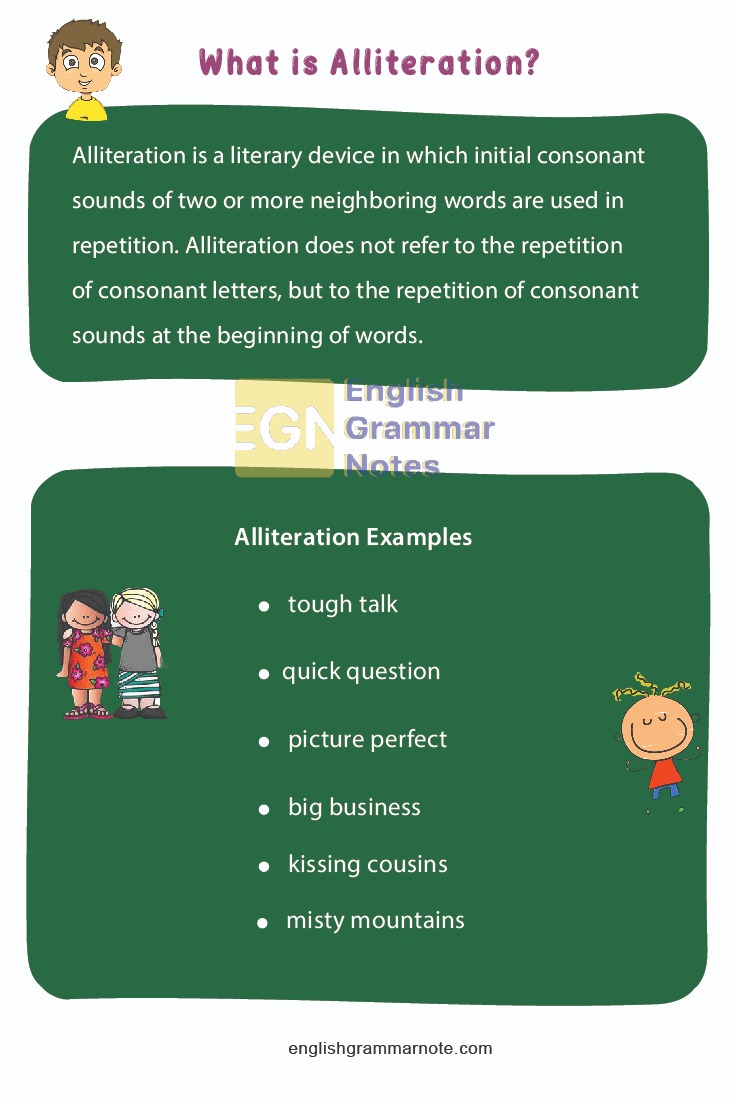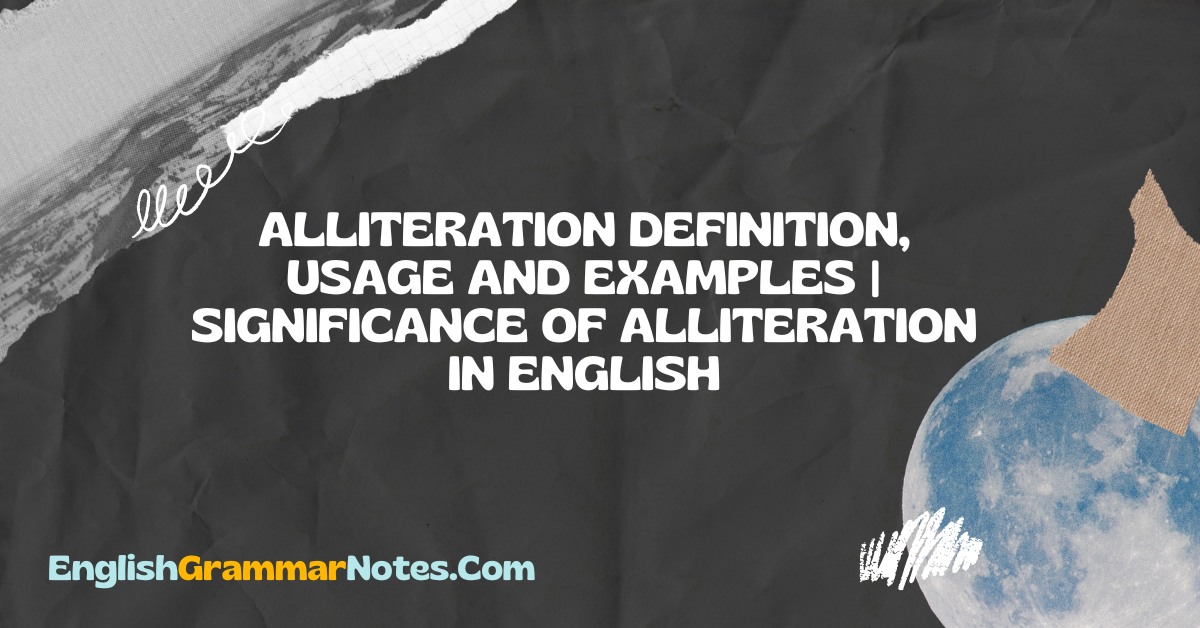Alliteration, pronounced as al·lit·er·a·tion, is a common literary device used to draw the attention of the readers to the most important aspects of your writings. It can also be used to create rhythm and musicality in an otherwise ordinary phrase. In this article, you will be introduced to all the essential information about alliteration including its definition, common examples, its significance, etc.
- What is Alliteration?
- Alliteration Examples
- Purpose of Alliteration
- Alliteration Synonyms
- Difference between Assonance, Consonance, and Alliteration
- What is alliteration?
- Give examples of alliteration?
- What are the benefits of using alliteration?
- Distinguish between alliteration and assonance?
What is Alliteration?
Alliteration is a literary device in which initial consonant sounds of two or more neighboring words are used in repetition. Alliteration does not refer to the repetition of consonant letters, but to the repetition of consonant sounds at the beginning of words. Alliteration is effective only if alliterative words flow in quick succession.
Alliteration Examples
People make use of alliteration in everyday conversations. Some common examples include:
- tough talk
- quick question
- money matters
- picture perfect
- high heaven
- rocky road
- big business
- kissing cousins
- jumping jacks
- no nonsense
- holding hands
- whispering wind
- sweet and simple
- forever free
- misty mountains
- Happy as a Horse
- perfectly possible
- leaping lizards
- burning bright
- dazzling dark

See More:
Purpose of Alliteration
The use of alliteration has several benefits:
- Alliterations are often employed to synchronize the words with the metrical patterns.
- Alliteration creates rhythm and melody in the poem.
- The use of alliteration also emphasizes certain ideas or words.
- The main purpose of using alliteration is to make your writings melodious and interesting.
Things to Keep in Mind
Given below are some points that you should have in mind when it comes to using alliteration:
- Never engage in the overuse of alliteration
- Consider the tone of your writing before you use alliteration.
- Make use of alliteration only after you have completed composing the text.
Here is the Guide to English Grammar Notes & Study Material for grammar concepts that aid students ranging from beginner to advanced level to score well.
Alliteration Synonyms
Although Alliteration has no synonyms that convey the same sense, some words that are closely related to alliteration are: initial rhyme, beginning rhyme, dingdong, jingle-jangle, crambo, head-rhyme, and repetitiousness.
Difference between Assonance, Consonance, and Alliteration
Assonance, consonance, and alliteration are commonly literary devices. Alliteration refers to the repetition of initial consonant sounds across the start of several words in a line of text. Assonance on the other hand refers to the repetition of vowel sounds, in words in close proximity to each other in a line of text.
Consonance as a literary device refers to the repetition of consonant sounds at the beginning, middle, or end of words. On the other hand, alliteration specifically refers to the repetition of consonant sounds at the beginning of a group of words.
FAQs on Alliteration
Alliteration is a literary device in which the initial consonant sounds of two or more neighboring words are used in repetition.
2. Give examples of alliteration?
Some examples of alliteration include: kissing cousins, jumping jacks, no nonsense, Holding Hands, Whispering Wind, etc.
3. What are the benefits of using alliteration?
The use of alliteration adds rhythm and musicality to what you write. The repetition of sounds would emphasize certain ideas and phrases. The use of alliteration brings words in sync with metrical patterns.
4. Distinguish between alliteration and assonance?
Alliteration refers to the repetition of initial consonant sounds across the start of several words in a line of text. Assonance on the other hand refers to the repetition of vowel sounds, in words in close proximity to each other in a line of text.
Conclusion
Alliteration is a literary device that can be used to bring about rhythm and musicality to what you write or speak. The repetition of consonant sounds can affect the mood of a poem. Alliteration can be used to give a calm, smooth feeling or a loud, harsh feeling to texts. The repetition can also draw attention to certain parts of a phrase or text. Hence the appropriate use of alliteration will surely create the desired effect in readers.
